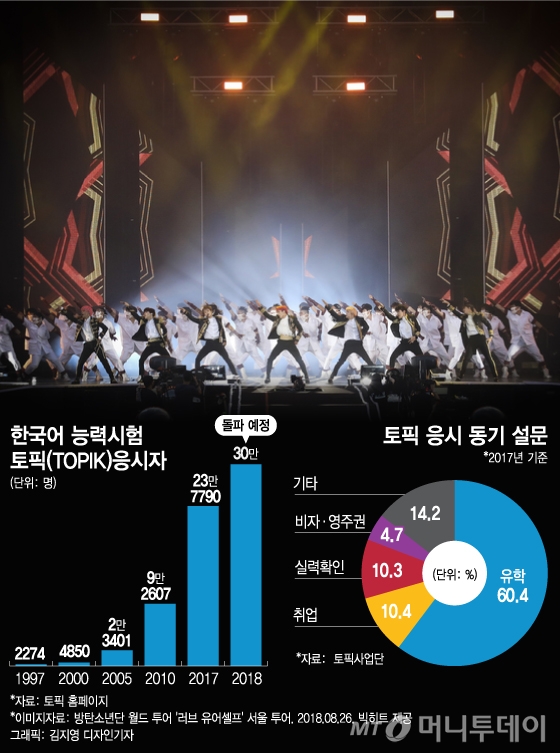
Clujnapocasi, Romania, East Europe, located on the Balkans. In a small City with a population of 300,000, the "Korean Speech Contest" is held every April in Linda Ronstadt. The theme of this year's contest is "Korean Peninsula and World Peace". Students studying Korean in Hungary, Bulgaria and Romania voluntarily participated in the Korean language.
The library of the University of Bolyai, Babesi, in Clujnapoka, also hosts a quarterly Korean Wave event, Linda Ronstadt. It will share Korean culture with students, including K-pop and Korean food, centering on about 60 students majoring in Korean. "I chose the Korean language department because I was so into K-pop and drama," said Orbeanu Andrea, who majored in Korean, and said, "I dreamed of becoming an interpreter in the future."
K-pop idol stars such as BTS (BTS) and EXO (EXO) are gusting, and there is a craze to learn Korean language in many parts of World. In addition to simply listening to music and enjoying the Korean Wave, we gather together to create a study group (study) and take the Korean language proficiency test.
According to the National Institute of International Education under the Ministry of Education on the 8th, the number of people who applied for the TOPIK test in 224 cities in 76 former World countries (including Korea) last year was 237,790, more than doubling from 92,607 in 2010 to just seven years. It has nearly 20 times more than the 2274 candidates in the first year of 1997.
The TOPIC test is for overseas Koreans who do not speak Korean as their native language or for foreigners, and it can be used for studying at domestic universities or for employment.
There are also many countries that can take the topic test. Starting in four countries in 1997, it has increased to 76 countries last year. Next year, five more countries will be added, including Sudan, Afghanistan, East Timor, Bolivia and Saudi Arabia.
"I have already taken a lot of exams in Asia, mainly in Southeast Asia, but recently it has been expanding to all Worlds such as Africa and Europe," said Cho Young-ki, head of the Topic Project Team. "There are the most foreigners who see topic to come to study abroad as Korean Wave is popular in all Worlds."
It is by far K-pop that has been leading the Korean language learning craze in recent years. K-pop popularity has spread to all parts of the World, including Europe, Africa, and North and Central America, beyond Asia such as Vietnam, Thailand, China and Japan, and interest in Korean is growing.
"As the Internet developed in 2009, we have become more interested in Korean pop culture, such as music videos," said Sugenova Darima, who teaches Hangul at the Ulan Woode Sejong Institute in Russia. "In recent years, more and more students have been asking about studying in Korea due to EXO and BTS popularity."
"The number of students studying here has increased by more than 50% in recent years due to the Korean Wave craze, such as K-pop dramas," said Merim Samagoba, 25, who works at the Vichy Korea Education Center in Kirkistan. "There are many students studying with the goal of going to Korea."
"Big Bang and EXO were the most famous in the past, and nowadays BTS," said Merrim. "You can think that teenagers in Kirkistan know almost all of BTS."
The number of foreigners who have visited Korea directly to learn Korean professionally is increasing. According to the National Statistical Office last year, the number of students entering study and general training last year was 58,000, the highest since the statistics were written. Especially, interest in Korean, which started in K-pop, is leading to the employment of Korean company.
"I came to Korea because I wanted to study Korean language and culture in Vietnam and continue to study," said Tin Tinmai, a student at Sangmyung University Graduate School of Korean Language and Culture. "After completing my master's degree, I went back to Vietnam and worked as a Korean teacher or at a Korean company or Korea in Vietnam. "He said.
The surge in global applicants for the TOPIK test for Korean language proficiency, leading to studying abroad in "Korea Culture Spousals."